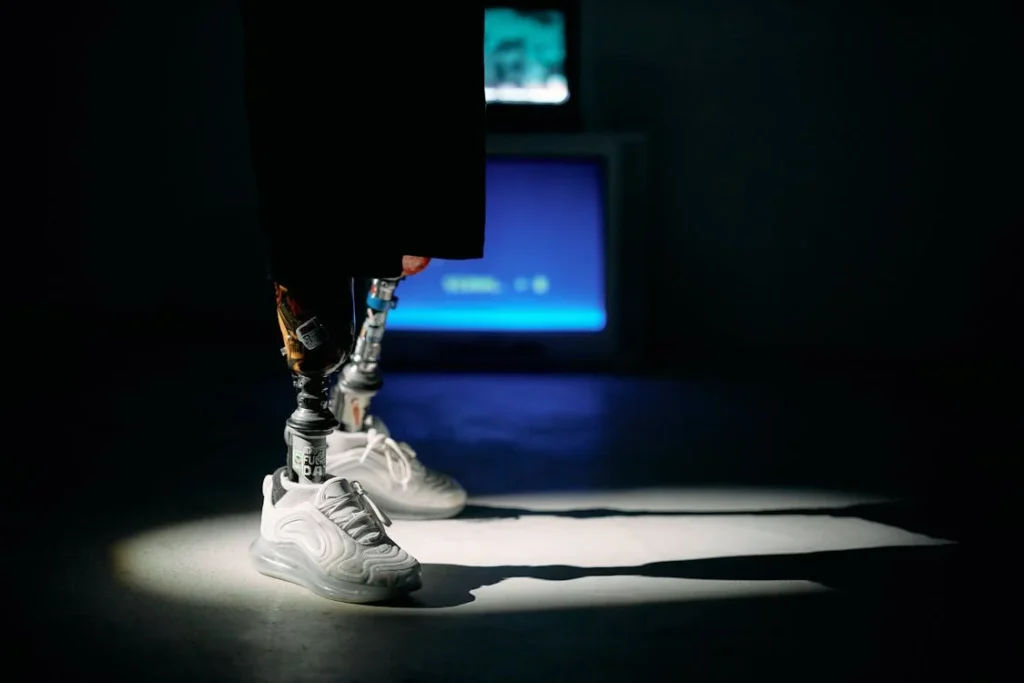Life changes in an instant after amputation. One day, you’re standing on your own two feet. The next, everything feels uncertain. Surgery may have saved your life, but it also leaves behind many questions—Will I walk again? Will I feel whole? Will people see me differently?
The journey after amputation is not just physical—it is deeply emotional. While most people focus on the wound, the healing, and the prosthetic device itself, what often gets missed is the emotional side of the story. In truth, how a person feels about their body, their movement, and their future can shape the entire recovery.
And that’s why timing matters. Early prosthetic integration—when a person begins using a prosthetic limb as soon as medically safe—does more than just help with walking. It plays a powerful role in healing the mind, rebuilding confidence, and restoring a sense of control.
In this article, we’ll walk through how early prosthetic use can transform a person’s psychological recovery. From boosting morale to reconnecting with identity, this is where science meets humanity.
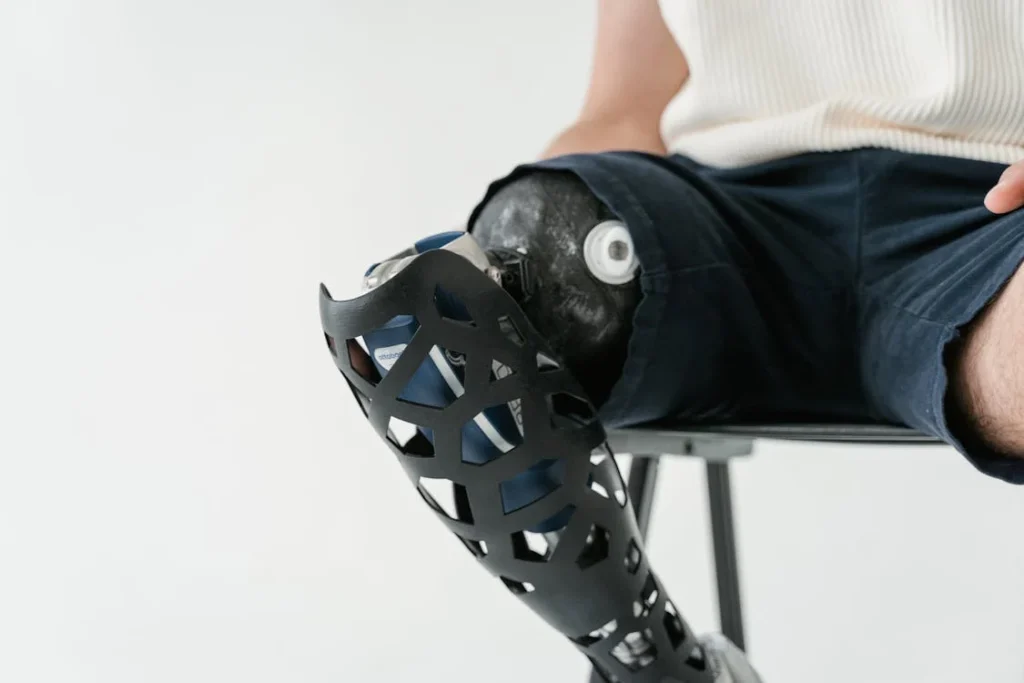
Understanding the Emotional Impact of Amputation
When the Body Changes, the Mind Responds
The first few days after amputation are filled with medical concerns—bandages, medication, doctors’ visits. But when the dust settles, emotions begin to surface.
Most people describe a feeling of loss, not just of the limb, but of independence, certainty, and identity. They may feel like a part of them is missing—physically and emotionally.
It’s very common to feel grief. Amputation is, in many ways, a loss like any other. There may be denial at first, followed by sadness, anger, confusion, and eventually, acceptance.
However, not everyone moves smoothly through this process. For some, especially if left unsupported, it becomes easy to stay stuck in the early stages of grief.
This is where early prosthetic integration can make a real difference. Instead of letting that loss define a person’s reality for months, a prosthesis offers a tangible symbol of hope. It doesn’t erase the pain, but it gives the mind something new to focus on—a path forward.
When someone starts using a prosthetic early, it changes their inner dialogue. It turns “I can’t” into “maybe I can.” It brings movement back into the picture, and with movement comes energy, motivation, and a growing sense of possibility.
How Early Prosthetic Use Rebuilds Self-Image
Looking in the Mirror Again
After surgery, many amputees avoid mirrors. The body they see looking back feels unfamiliar. The missing limb becomes the first thing they notice, and often, the only thing they can focus on. It can be shocking, even heartbreaking, to see yourself changed so drastically.
When prosthetic fitting is delayed, this discomfort often grows. The longer someone goes without using a limb, the more detached they feel from their body. They may start seeing themselves only through the lens of disability, rather than strength or survival.
But something powerful happens when a prosthetic limb is introduced early. Suddenly, the body feels more complete. Even if it’s a temporary device, it fills the space—not just physically, but emotionally.
The person begins to stand differently, hold themselves differently. They might even catch themselves smiling in the mirror, for the first time in a while.
Early prosthetic use helps reconnect the mind and body. It allows people to see themselves as whole again—not the same, but strong, capable, and very much alive.
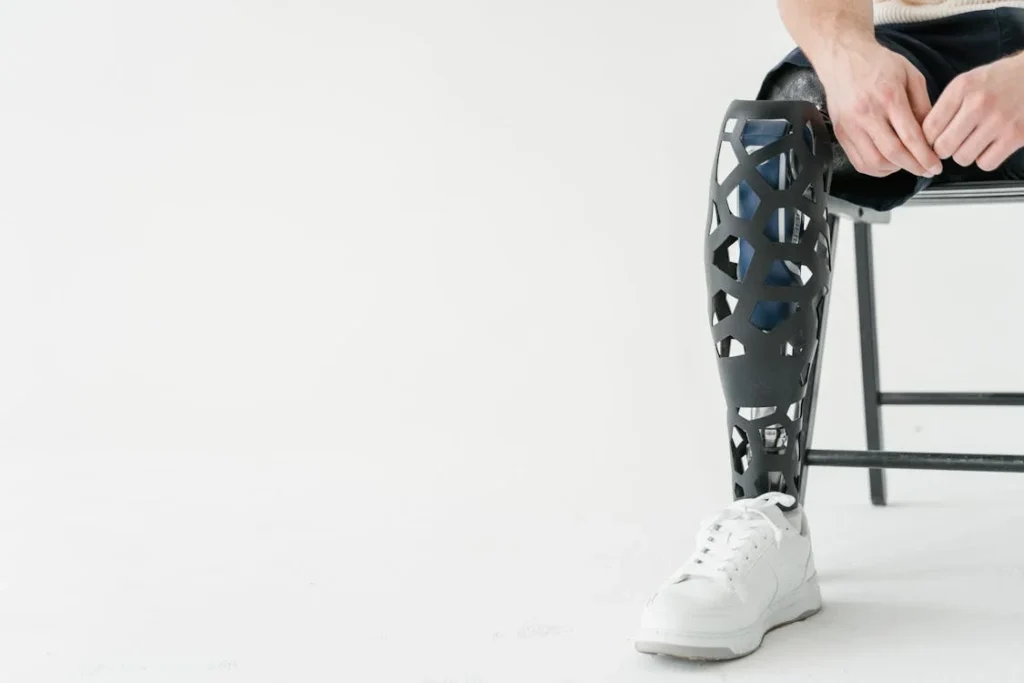
The Confidence That Comes With Movement
Regaining Control One Step at a Time
Movement is tied to freedom. It’s how we express ourselves, explore our world, and take care of our needs. After surgery, when movement becomes difficult or impossible, confidence takes a huge hit.
People may feel helpless, like they’re trapped in their own home—or worse, in their own body.
But the minute someone takes their first step with a prosthetic, everything begins to shift. It may be shaky, slow, and awkward at first, but it’s progress.
That first step is more than just a physical act—it’s a mental breakthrough. It proves that change is possible. It shows the mind that there’s a way forward.
The earlier this step happens, the more confident a person feels in their recovery. They learn that they don’t have to be perfect to move. They just have to start.
And with each small success—walking to the bathroom, climbing a few stairs, standing in the kitchen—the mind becomes stronger.
This confidence doesn’t stay limited to mobility. It spills over into every part of life. People begin talking more, laughing more, making plans, setting goals. Confidence is contagious, and early prosthetic use helps ignite it.
Breaking the Cycle of Isolation
When Delays Lead to Withdrawal
It’s easy to underestimate how much amputation affects social life. People who once loved going out, meeting friends, or attending family events may suddenly start saying no.
They worry about being stared at. They feel unsure about how to move or sit in public. They don’t want to answer questions or explain what happened.
This withdrawal is a silent danger. It often leads to deeper feelings of loneliness and depression. Human beings need connection, and when that connection fades, so does mental health.
Delaying prosthetic use only makes this worse. The longer someone stays out of the public eye, the harder it becomes to return. They lose practice in being around people. They may even forget how good it feels to be included.
But when prosthetic integration happens early, it gives people a reason—and a way—to rejoin the world. A person with a prosthetic can stand in a room, shake hands, hug a friend, and move through life without needing to be carried or pushed. That’s powerful. That’s freedom.
And that freedom often leads to deeper emotional healing. The more people engage with others, the more they laugh, listen, and feel supported. Early movement leads to early re-connection, and that changes everything.
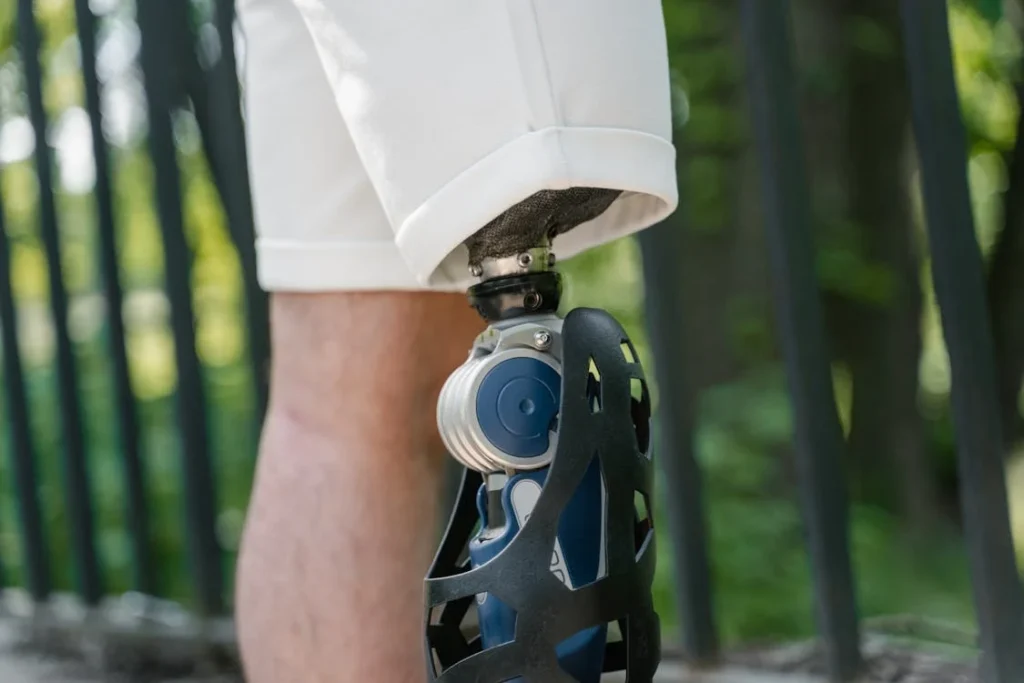
Building a New Normal Sooner
Fitting the Prosthetic Into Daily Life
One of the hardest parts of post-surgery recovery is rebuilding routines. Tasks that once felt easy—getting dressed, making tea, brushing your teeth—can suddenly feel impossible. This daily frustration adds up, making people feel stuck.
But when a prosthetic is introduced early, even if it’s just for a short time each day, it allows people to start practicing daily life again. The earlier you begin this process, the faster you find your rhythm.
You learn new ways to do old things. You discover workarounds, adaptations, and strengths you didn’t know you had. You begin to shape a new version of normal—not one that looks exactly like before, but one that works, feels familiar, and brings joy.
More importantly, building this new normal early reduces the risk of depression. It gives structure to the day. It provides a sense of purpose. And it reminds the person that their life, though changed, is far from over.
Emotional Strength Builds Physical Strength
The Body Follows Where the Mind Leads
It’s easy to think of prosthetic use as a physical journey. And it is. Muscles must be trained. Balance must be practiced. Stamina must be built. But beneath all of that physical work lies a deeper truth: without emotional strength, physical progress stalls.
When someone feels hopeless or afraid, they stop trying. When they doubt themselves, they move less. When they feel overwhelmed, they shut down.
Early prosthetic use helps build emotional strength first. By introducing the prosthetic at an early stage, the person experiences small wins—walking to the mirror, standing without help, shifting their weight. These victories build mental momentum. They provide fuel to keep going.
This emotional boost feeds directly into physical gains. The person shows up to therapy with more motivation. They listen, try, and push through tough days. Their belief in themselves becomes the foundation for every step they take.
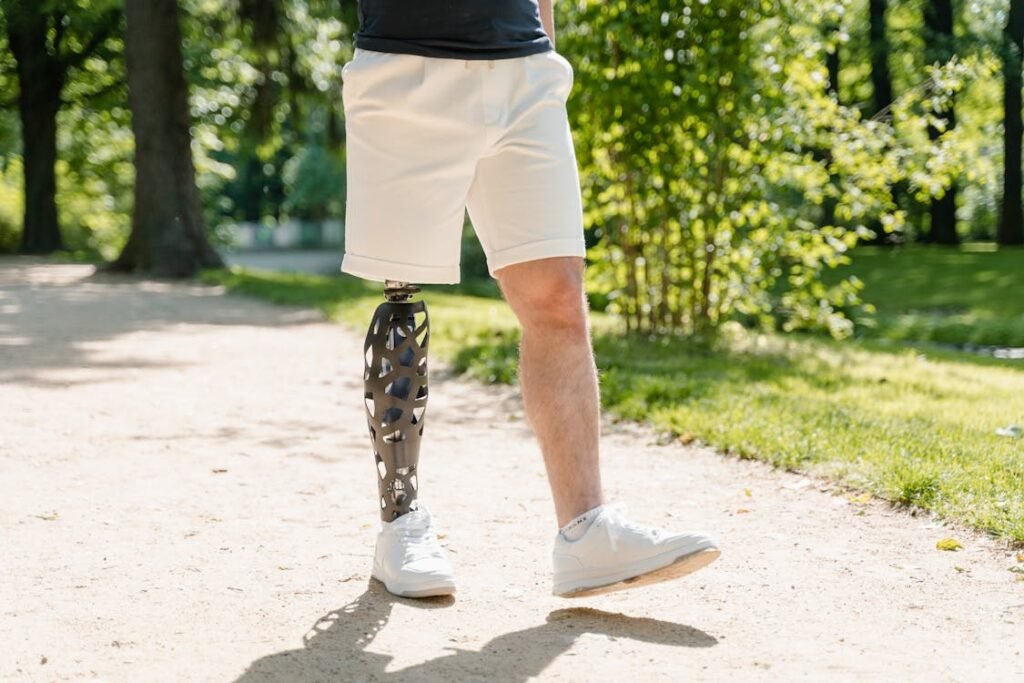
The Power of Choice and Control
From Patient to Participant
In the hospital, after surgery, most people feel like everything is out of their hands. Doctors make decisions. Nurses move you from place to place. Schedules are set by someone else. While this is necessary during recovery, it can also leave the patient feeling powerless.
Early prosthetic integration changes this dynamic. It gives the individual a role in their own recovery. Instead of waiting for things to happen, they start making things happen.
Choosing to stand. Choosing to walk. Choosing to try.
Each choice adds to a sense of personal agency. The person begins to see themselves not just as a patient—but as a participant, an active force in their healing journey. And that shift in mindset makes every other step easier.
People who feel in control recover faster. They’re more likely to seek support, follow therapy, and stay committed to their goals. Early prosthetic use is not just about timing—it’s about empowerment.
Relationships Improve With Early Recovery
When You Move, They See Hope
Amputation doesn’t just affect the individual—it affects their loved ones too. Partners, children, parents—they all go through their own emotional journey. They worry, they grieve, and they sometimes feel helpless.
When prosthetic fitting is delayed, it often leaves everyone in limbo. The family doesn’t know what to expect or how long recovery will take. This uncertainty causes stress and tension.
But when someone starts using a prosthetic early, their loved ones see progress. They see strength. They see the person they love standing up and moving forward. That visual alone is enough to restore hope in the entire household.
Moreover, early movement reduces the burden on caregivers. It allows the amputee to begin taking care of small tasks again. This shift from dependence to independence lightens the emotional and physical load on the family.
With more balance at home, relationships heal faster. There’s more laughter, more connection, and less stress. That’s the true power of early recovery—it brings people back together.
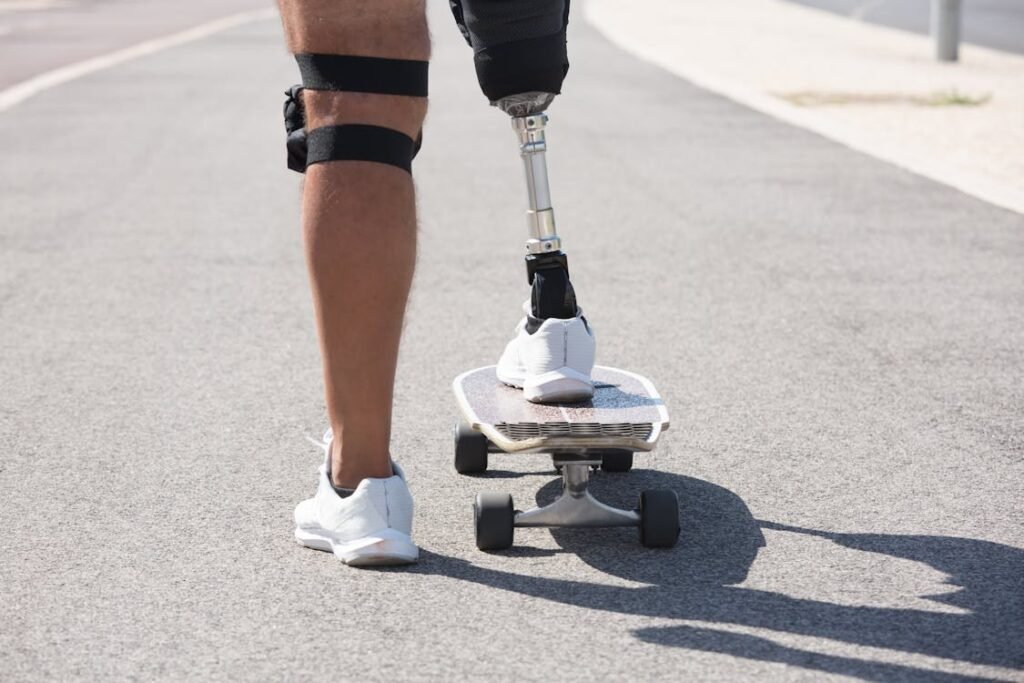
Preventing Long-Term Psychological Scars
The Danger of Delayed Acceptance
When a person loses a limb, the clock starts ticking—not just for physical healing, but for emotional adjustment. Delaying prosthetic integration often means postponing this emotional work. The longer someone goes without using a prosthetic, the harder it becomes to accept their new body.
This delay leads to emotional scars that aren’t always obvious at first. A person might appear calm on the outside, but inside they’re holding onto fear, shame, or denial. These feelings quietly grow roots, affecting self-esteem, relationships, and overall mental health.
But when a prosthetic is introduced early, the body and brain begin to move forward together. The device becomes a part of the healing, not a reminder of the loss.
This integration is subtle but powerful. It sends a message to the brain that recovery has started—and that it’s okay to accept what’s happened and build a new future.
Blocking the Fear of Movement
Many amputees, especially in the first few months, develop something called kinesiophobia—the fear of movement. After a major trauma like surgery, this fear makes sense. The body feels fragile. There’s pain, swelling, and the constant thought of “what if I fall?”
But if a person doesn’t start moving early, the fear becomes real—not because they’re incapable, but because they’ve been inactive for too long. Muscles shrink. Balance fades. Even standing feels unsafe.
Early prosthetic fitting prevents this fear from taking hold. Each step taken with a prosthetic teaches the brain that movement is safe, that the body can be trusted again. This trust is a key ingredient in long-term confidence and mental peace.
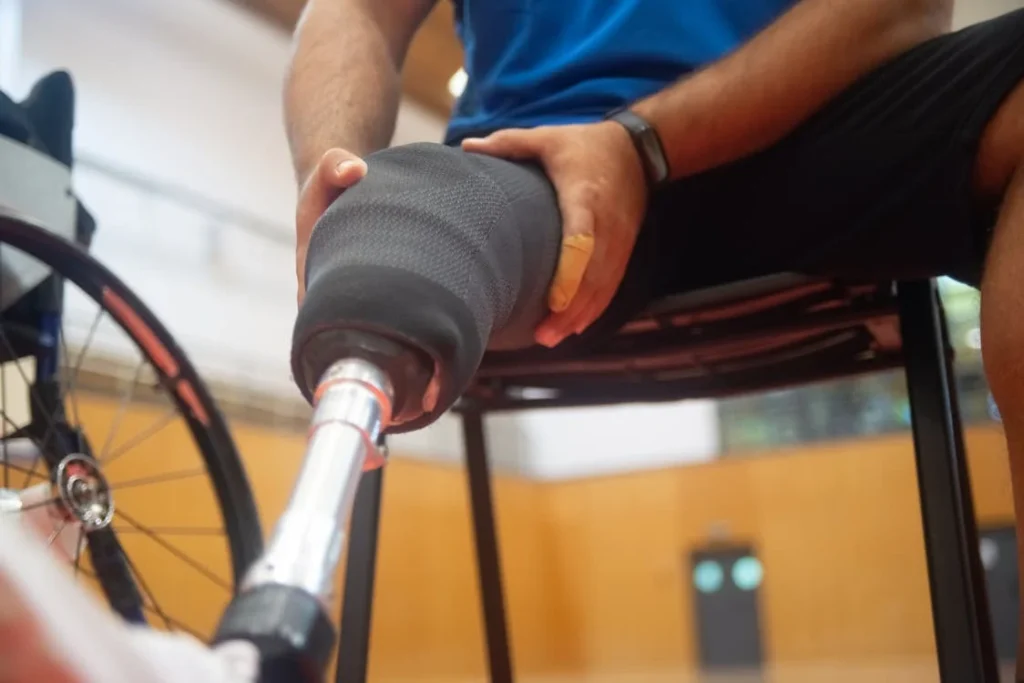
The Role of Routine and Mental Stability
Why Structure Heals the Mind
After surgery, a person’s life suddenly lacks structure. The daily routine is replaced by medication schedules, hospital visits, and long periods of inactivity. This shift affects the mind more than most people realize.
Without purpose or rhythm to the day, the mind begins to wander—and not always to good places. Negative thoughts creep in. Motivation dips. Depression finds a foothold. And each day starts to feel like the last, without progress.
But once a prosthetic is fitted, everything changes. Now there’s a reason to get up. Physical therapy starts. Small tasks like putting on clothes or practicing steps bring back a sense of routine. Life gets a rhythm again.
Routine helps anchor the mind. It provides a sense of time, of growth, of forward motion. And that mental anchor is just as important as any medication in the healing process.
The Emotional Strength Found in Self-Reliance
One of the greatest psychological benefits of early prosthetic use is a return to self-reliance. People who once needed help to move, stand, or even reach for a cup can begin doing those things on their own again.
And with each task they complete without assistance, something inside them shifts.
It’s not just about pride—it’s about peace. When you can rely on your own body again, the world feels less threatening. That confidence builds layer by layer, helping to ward off anxiety, frustration, and depression.
Early integration turns “Can someone help me?” into “I can do this myself.” That change is priceless.
How Early Integration Shapes a Positive Future Outlook
Visualizing What’s Possible
When people think of the future after amputation, their thoughts often depend on what’s happening in the present. If they’re lying in a hospital bed, unable to move, the future looks cloudy. It’s hard to dream when you’re stuck in survival mode.
But when a prosthetic is introduced early—sometimes even while the healing process is still underway—it lights a spark. The mind starts to wonder: If I can stand now, maybe I can walk next month. If I can walk, maybe I can work again. Travel. Dance. Play with my kids.
That mental shift—from survival to vision—is one of the most powerful psychological benefits of early prosthetic fitting. It allows people to see a path forward. It transforms uncertainty into possibility.
Hope Becomes a Habit
Hope is not just a feeling. It’s a habit—a practice that becomes stronger the more you use it. When someone begins using a prosthetic early, they collect wins. These wins build belief. That belief turns into optimism. And optimism becomes a powerful force for healing.
This cycle only starts when the mind sees that progress is possible. And that vision becomes clearer with each step taken using a prosthetic.
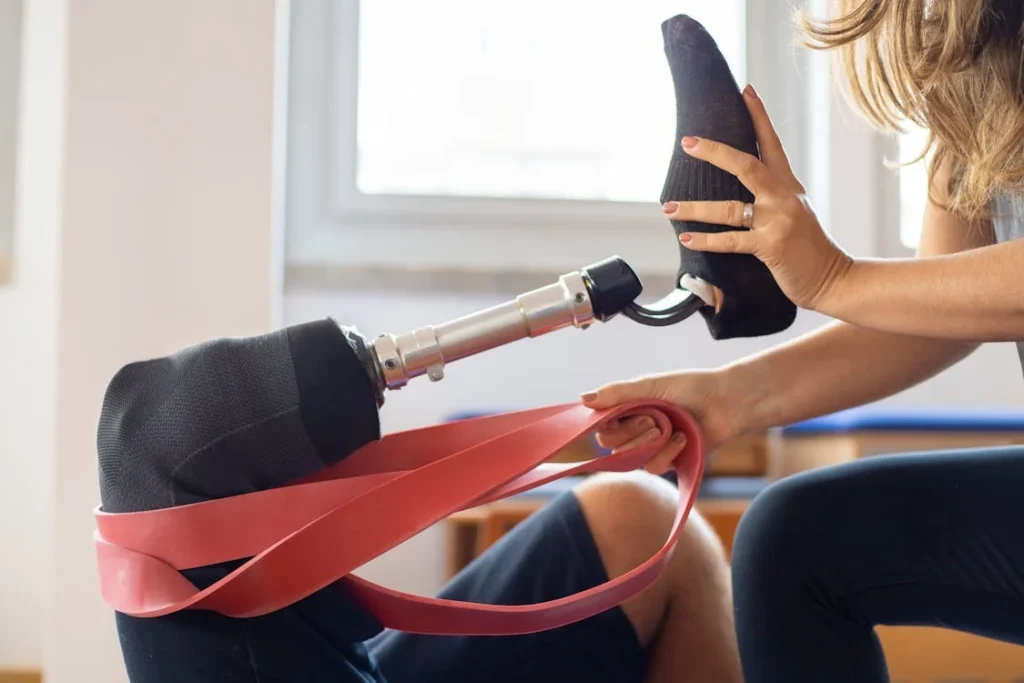
Addressing PTSD and Trauma Through Movement
Healing the Brain Through the Body
Many amputees experience post-traumatic stress—not just from the event that led to the amputation, but from the surgery itself, the hospital experience, and the sudden loss of control. These mental wounds can be deep, often hidden behind smiles and small talk.
Therapy can help, but movement is often just as powerful. Early prosthetic integration offers a form of trauma recovery that’s physical but rooted in psychology.
Each step taken helps regulate the nervous system. It provides grounding. It brings the person back into their body, their present, their power. This type of movement-based healing is especially important for those who struggle to process trauma verbally.
The body becomes the healer. And the prosthetic becomes a tool for that healing—not just to walk, but to let go of fear.
Creating New Sensory Experiences
After trauma, the body can feel unfamiliar. For amputees, this disconnect is even greater. They may feel numb in some areas, hypersensitive in others. This sensory confusion makes recovery hard.
But when a prosthetic is introduced early, it provides new sensory input—touch, weight, balance. These inputs help re-map the brain. They tell the nervous system that this new limb is part of the body now. That it’s okay to trust movement again.
Over time, this new body awareness becomes comforting. It reduces anxiety. It lowers the intensity of trauma-related flashbacks. The prosthetic becomes not just a tool, but a bridge back to feeling whole.
Cultural Identity, Dignity, and Public Confidence
Prosthetics as a Statement of Resilience
In many cultures—including Indian society—appearance and movement are tied to identity. How a person walks, how they carry themselves, even how they dress—all of this sends a message.
Without a prosthetic, amputees are often left feeling exposed, vulnerable, and “othered.” They may wear long clothing to hide the limb. They may avoid going out altogether. This takes a toll on dignity.
Early prosthetic fitting allows people to reclaim that dignity. It helps them move in the world with confidence, not apology. They’re no longer seen as victims of tragedy, but as survivors with strength.
And when society sees that strength, it begins to change how it views disability—not as a flaw, but as another form of human resilience.
Freedom to Reclaim Public Space
Public spaces—markets, trains, workplaces—can feel overwhelming after surgery. The noise, the stares, the uneven terrain. For someone without a prosthetic, navigating these spaces can feel like a mountain. The fear of falling, of being judged, of standing out—it’s all too much.
But early prosthetic integration gives people the tools to re-enter these spaces sooner. They regain physical balance and emotional security. They move with purpose. And most importantly, they feel like they belong.
This belonging brings mental peace. It replaces hesitation with confidence. It lets the amputee move through the world not as an outsider, but as themselves
Conclusion
Amputation marks the end of one journey—but it’s also the beginning of another. And how that journey begins matters more than most people realise. The body, mind, and spirit are all connected, and what happens in the early days of recovery sets the tone for everything that follows.
When a prosthetic is introduced early, it becomes more than a tool—it becomes a symbol. A symbol of forward motion. A symbol of strength. A symbol that says, “This is not the end of my story.”
It brings confidence where there was hesitation. It replaces fear with possibility. It helps people return to their routines, reconnect with loved ones, and rediscover the small joys of everyday life. It transforms self-doubt into self-belief. And it turns a medical device into a key that unlocks independence, pride, and purpose.
Waiting too long delays more than just walking. It delays healing of the heart. It puts mental health at risk. It chips away at identity. But when prosthetic fitting happens at the right time—early, intentionally, and with support—it changes everything.
At Robobionics, we’ve seen this transformation happen again and again. We’ve seen individuals walk out of despair and into hope. We’ve seen tears of fear turn into tears of joy. And we know that none of it starts with perfection—it starts with the first step.



